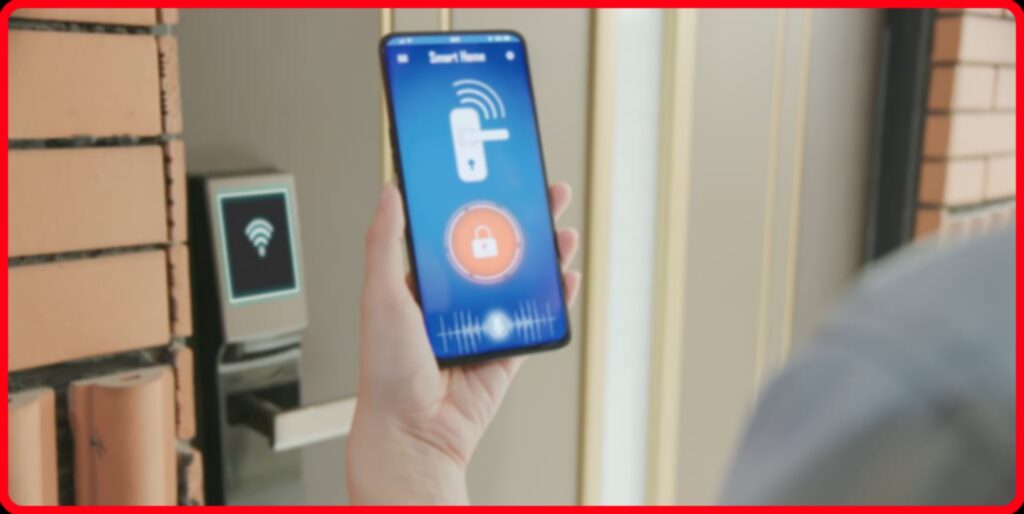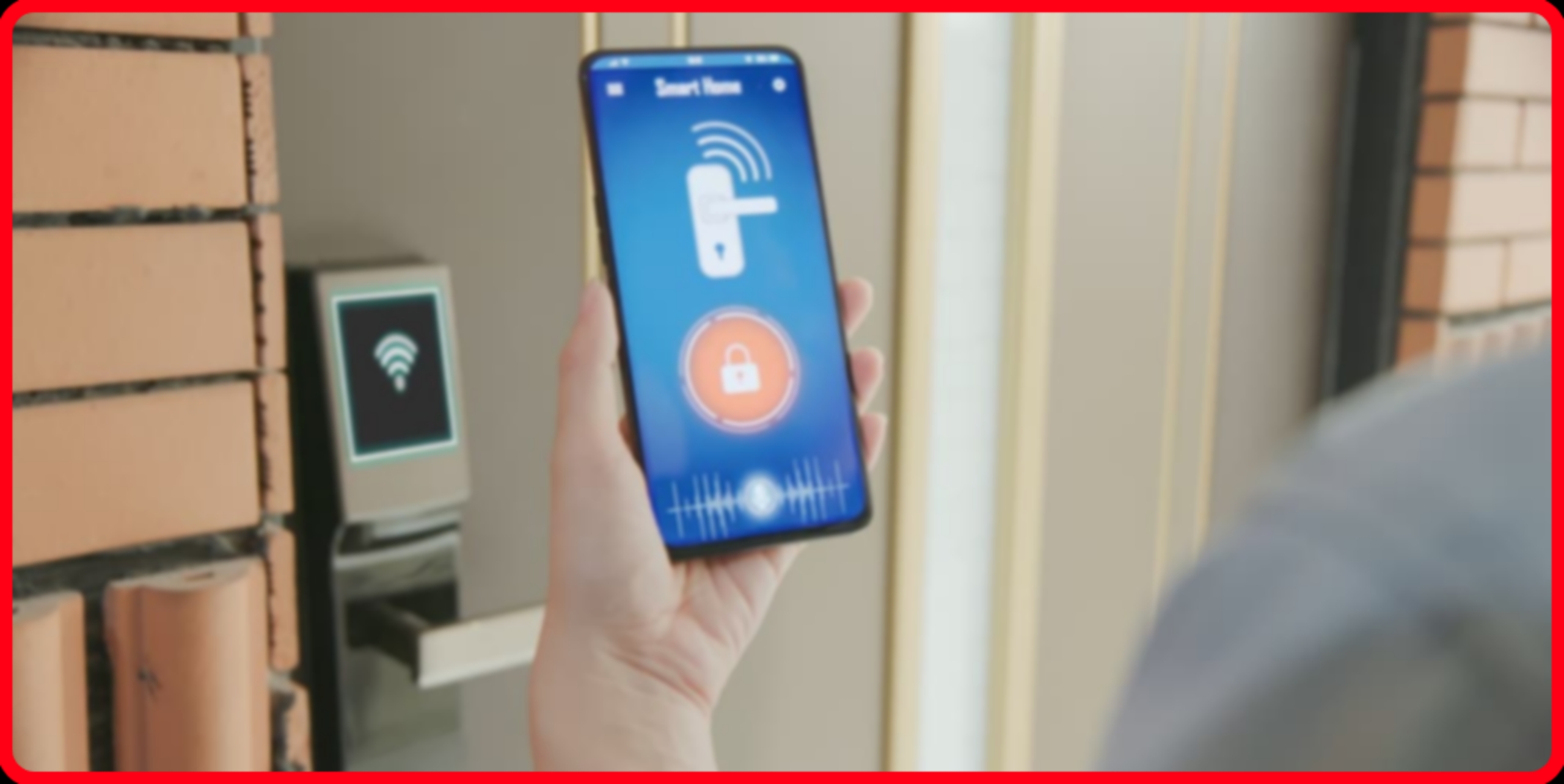The realm of smart home technology is expanding rapidly, driven by continuous innovations that promise to enhance comfort, efficiency, and connectivity in our daily lives. As we move further into 2024, several groundbreaking advancements are shaping the future of smart homes. Here’s a detailed look at the innovations to watch.
1. Voice-Activated Control Systems: The Next Generation

Voice-activated control systems are evolving beyond simple commands. The latest AI-driven voice assistants are becoming more intuitive and context-aware, allowing for natural conversations and smarter home management. These systems will not only understand commands but also anticipate needs based on your routines and preferences, making interactions more seamless and personalized. Expect future updates to offer even deeper integration with smart devices and enhanced multi-language support
2. Advanced Home Security: AI-Powered Surveillance
Home security is getting smarter with the integration of AI technology. Modern security cameras and doorbells are now equipped with sophisticated algorithms that can differentiate between people, pets, and objects, reducing false alarms and improving threat detection. These systems provide real-time alerts and can even predict potential security issues based on unusual behavior patterns. Enhanced facial recognition and automated emergency responses are setting new standards for home security.
3. Smart Appliances with AI: Efficiency Meets Innovation
Smart appliances are becoming more intelligent, thanks to advancements in AI. Refrigerators, ovens, and washing machines are now equipped with AI that optimizes their performance based on usage patterns. For instance, a smart refrigerator can suggest recipes based on its contents or notify you when items are about to expire. AI-driven washing machines can adjust cycles based on load size and fabric type, while smart ovens can recommend cooking times and temperatures for various recipes.
4. Integrated Health Monitoring: Smart Homes for Wellness
The future of smart homes includes comprehensive health monitoring systems. These systems will integrate with various devices to track and analyze health metrics such as heart rate, sleep patterns, and air quality. For example, smart thermostats and air purifiers will work together to ensure optimal environmental conditions for better sleep and overall health. These innovations aim to create a home environment that proactively supports wellness and alerts users to potential health concerns.
5. Energy-Efficient Smart Grids: Power Management Reimagined
Smart grids are transforming the way we manage energy at home. Future smart grids will offer advanced energy management features, such as real-time usage monitoring and automated load balancing. This will not only help in reducing energy consumption but also in managing energy costs more effectively. Homes will be able to store excess solar energy and use it during peak hours, optimizing energy use and contributing to a greener environment.
6. Augmented Reality (AR) Interfaces: Immersive Home Management
Augmented Reality (AR) is set to revolutionize how we interact with our smart homes. Future AR interfaces will allow users to manage home systems through immersive, interactive displays. Imagine controlling lighting, adjusting the thermostat, or viewing security camera feeds through a holographic interface projected into your living space. This technology will provide a more intuitive and engaging way to interact with home automation systems.
7. Self-Healing Materials: Durable and Sustainable
Self-healing materials are becoming a reality, with applications in smart home devices and construction. These materials can repair minor damages autonomously, extending the lifespan of smart home products and reducing waste. For example, smart wall panels and floors could repair scratches or dents on their own, maintaining their appearance and functionality over time. This innovation not only enhances durability but also contributes to sustainability by reducing the need for replacements.
8. Advanced Home Robots: More Capable and Versatile
Home robots are evolving to become more capable and versatile. Future robots will handle a wider range of tasks, from cleaning and cooking to providing companionship and assistance with daily activities. Enhanced AI and machine learning will enable these robots to adapt to various household needs and interact more naturally with family members. Expect robots to become more integral to smart home ecosystems, offering personalized assistance and improving overall convenience.
9. Seamless Integration with IoT: A Unified Smart Home
The Internet of Things (IoT) is driving greater connectivity between smart home devices. Future smart home systems will feature seamless integration, allowing devices from different manufacturers to work together harmoniously. This will enable more sophisticated automation scenarios, such as adjusting lighting and temperature based on occupancy and activity patterns. A unified smart home ecosystem will provide a more cohesive and efficient user experience.
10. Sustainable Smart Homes: Eco-Friendly Innovations
Sustainability is becoming a key focus in smart home technology. Innovations in eco-friendly designs and materials are leading to smarter, greener homes. From energy-efficient appliances to sustainable building materials, the emphasis is on reducing environmental impact while enhancing home comfort. Smart irrigation systems, water-saving fixtures, and energy-efficient windows are just a few examples of how smart technology is contributing to a more sustainable future.
CONCLUSION
The future of smart home technology is bright and full of possibilities. These innovations are set to make our homes more intelligent, efficient, and responsive to our needs. As these technologies continue to develop, they promise to transform how we live, making our homes safer, more comfortable, and more connected than ever before.

